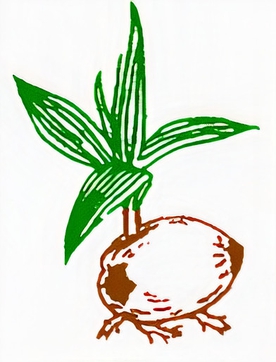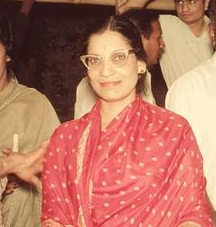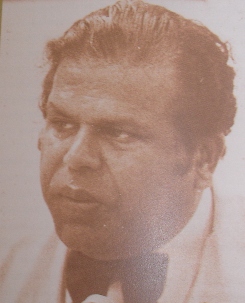
The Fiji Labour Party,also known as Fiji Labour,is a political party in Fiji. Most of its support is from the Indo-Fijian community,although it is officially multiracial and its first leader was an indigenous Fijian,Dr. Timoci Bavadra. The party has been elected to power twice,with Timoci Bavadra and Mahendra Chaudhry becoming prime minister in 1987 and 1999 respectively. On both occasions,the resulting government was rapidly overthrown by a coup.

Irene Jai Narayan was an Indian-born teacher and politician,who had a significant influence on politics in Fiji. She came to Fiji in 1959 after marrying Jai Narayan,a well known school Principal in Suva,and began her career as a teacher. She taught in DAV Girls School and MGM High School in Suva before entering politics.

Siddiq Moidin Koya was a Fijian politician,Statesman and Opposition leader. He succeeded to the leadership of the mostly Indo-Fijian National Federation Party (NFP) on the death of the party's founder,A. D. Patel,in October 1969,remaining in this post until 1977. He later served a second term as leader of the NFP,from 1984 to 1987.

Jai Ram Reddy,CF was an Indo-Fijian politician,who had a distinguished career in both the legislative and judicial branches of the Fijian government. In 1998,he received Fiji's highest honour,the Companion of the Order of Fiji,in recognition of his services to his country.

The National Federation Party is a Fijian political party founded by A. D. Patel in November 1968,as a merger of the Federation Party and the National Democratic Party. Though it claims to represent all Fiji Islanders,it is supported,in practice,almost exclusively by Indo-Fijians whose ancestors had come to Fiji between 1879 and 1916,mostly as indentured labourers. However,in the 2018 general election,the party recorded a considerable change in its support base due to the inclusion of more indigenous Fijian candidates.

Labasa is a town in Fiji with a population of 28,500 at the most recent census held in 2010.

Fiji's parliamentary election of March 1977 precipitated a constitutional crisis,which was the first major challenge to the country's democratic institutions since independence in 1970.
Sir Vijay Raghubar Singh,KBE was an Indo-Fijian lawyer and politician who held Cabinet office in the 1960s and 1970s. Vijay Singh served in Prime Minister Ratu Sir Kamisese Mara's government in a variety of positions,including Attorney-General,and was president of the Indian Alliance,a division of the ruling Alliance Party. He quit the party in 1979 following disagreement with Alliance leadership and later joined the opposition National Federation Party. Vijay Singh was involved in the restructure of the Fiji sugar industry and was a leading member of the Jaycees movement in Fiji.

Local elections in Fiji are held for two cities and ten towns. Each city or town has a council comprising between 8 and 20 members,elected for three-year terms,although the government announced legislation on 15 February 2006 to extend the term to four years. Each city or town council elects from among its own members a Mayor for one year. Consecutive terms are permitted.
Asaeli Masilaca is a former Fijian politician and member of the House of Representatives of Fiji.

Karam Chand Ramrakha was a former Fiji Indian lawyer,union leader and politician,who served in colonial Fiji's Legislative Council and independent Fiji's House of Representatives from 1966 to 1982.
Harish Chandra Sharma is a Fiji Indian politician who became the leader of the National Federation Party in 1987. He was also the leader of the organisation representing most of the Hindus in Fiji,the Shree Sanatan Dharam Pratinidhi Sabha of Fiji.
Chandra Pal Tara Singh Bains was an Indo-Fijian politician. He served in the Legislative Council as a nominated member from 1963 to 1966.
The number of Fiji Indians that could be elected to the Legislative Council was fixed over the years as follows:
Kishore Nand Govind,OBE was a former Fiji Indian politician who was a judge of the High Court of Fiji. After retiring from politics,he was made a judge of the Supreme Court of Fiji and during the tumultuous times between the coups of May and September 1987 he continued to deliver verdicts which maintained the independence of the judiciary. He was forced to leave Fiji in late 1987 but returned in 2001 to be reappointed a judge of the High Court.
Unlike the majority of Fiji's Indian population,who are descendants of Indian indentured labourers brought to Fiji between 1879 and 1916,most of the Sikhs came to Fiji as free immigrants. Most Sikhs established themselves as farmers. Sikhs also came to Fiji as policemen,teachers and preachers. In recent years large numbers of Sikhs have emigrated from Fiji,especially to the United States,Canada,the United Kingdom,Australia and New Zealand. Sikhs in Fiji are generally referred to as Punjabis. Total population of sikhs in Fiji is around 3600. Discourse on the experiences and histories of Fijian Sikhs tends to subsume them under discourse framed in terms of other South Asian groups.
This is a synopsis of organisations formed by Indians in Fiji. When they became free from the bondage of indenture and were able to organise themselves,they founded numerous organizations to seek social and political justice. These organisations promoted the teaching of Indian languages and religious practices and also to help others in time of need. Some of the successful organisations are listed below in the order in which they were established. Some,such as the National Federation Party,are no longer exclusively Indian,but are still predominantly so.
John Sanday is a Fijian former rugby union player who played as a lock and number eight.

Douglas Walkden-Brown was an Australian Fijian missionary,farmer,educator,politician and diplomat. He was a member of the House of Representatives from 1966 to 1977 and served as Minister for Natural Resources and Minister for Agriculture,Fisheries and Forests between 1967 and 1975,later becoming Fijian Consul in Sydney.









